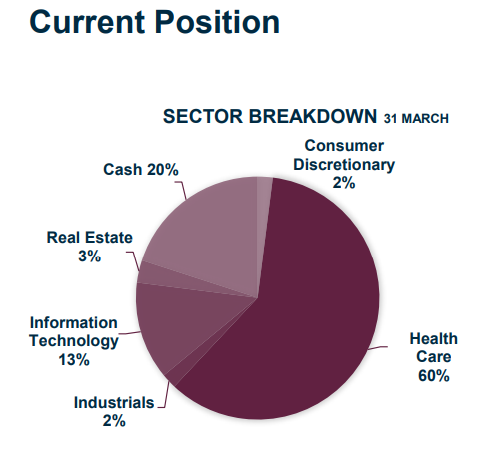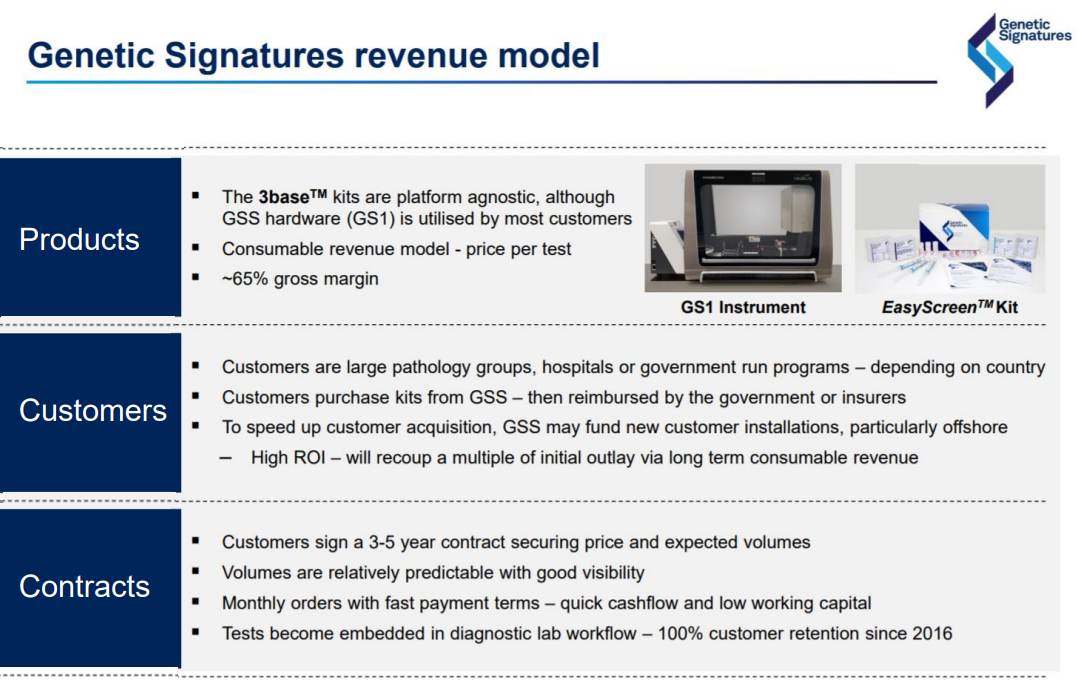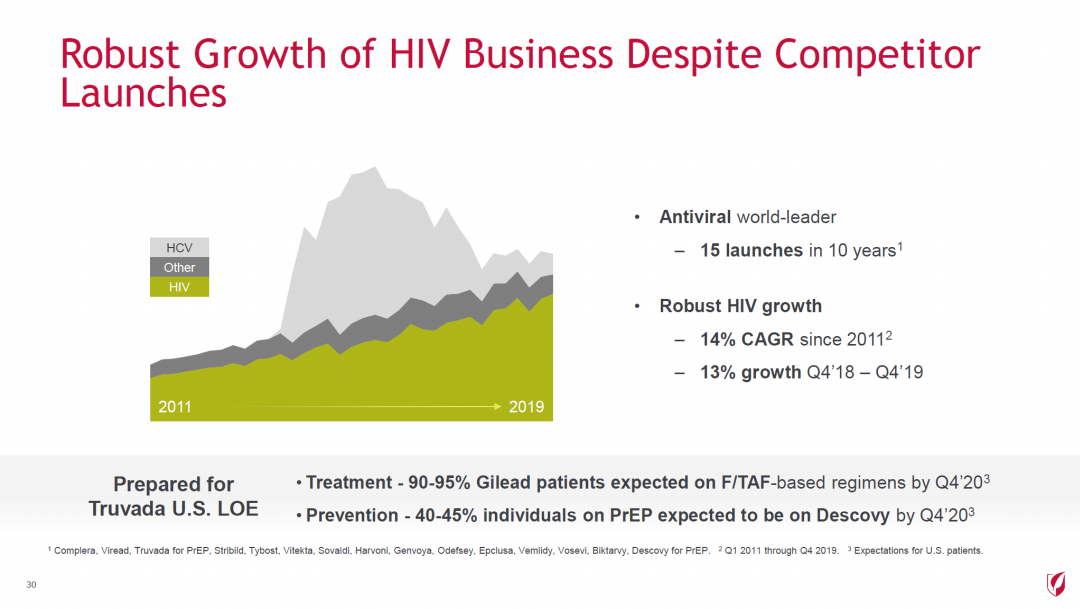Why this fundie bought Gilead Sciences
(Ed's note: Gilead's stock surged over 5% overnight after further positive developments in trialling its antiviral drug remdesivir as a potential treatment for COVID-19.)
The search term ‘adopt a healthcare worker’ has soared in popularity on Google in recent times as part of heartwarming campaigns to support frontline workers.
But one fundie from Pengana Capital has decided to take the interesting step of adopting a bunch of healthcare stocks developing innovative vaccines and treatments that could turn the tide against COVID-19 and other infectious diseases.
James McDonald, Portfolio Manager of the Pengana High Conviction Equities Fund, has been investing in the medical space for over 20 years. He revealed at a recent webinar that he used the downturn in March to bump up the fund’s healthcare exposure to a whopping 60%, from 40% previously.

McDonald’s rationale for such a significant exposure is that while COVID-19 will bend and reshape industries and consumer behaviours in unpredictable ways, the need for healthcare will always remain and short-term headwinds such as deferring elective surgeries will inevitably pass.
“We can be confident of a recovery in healthcare spending. In the short-term some of these companies have been impacted by hospitals focusing only on COVID-19 patients, but we know government spending on health will remain constant.”
He then dove into his top healthcare positions including 2 recently added, and how they’re tackling the world’s big problems. Two companies are ASX listed, while one is an American name making headlines.
Genetic Signatures (ASX:GSS)
ASX-listed Genetic Signatures is a new addition to the Pengana portfolio. The medical diagnostics producer recently developed a SARS-CoV-2 testing kit which has been approved by regulators here and in Europe, and is awaiting authorisation from the U.S.
While this means the company will benefit from a pickup in COVID-19 testing demand, it’s a smaller part of a bigger, more exciting story for GSS. McDonald says the installation of its testing products in hospitals and labs should help raise awareness of its other products that can detect gastroenteritis pathogens, numerous respiratory infections and antibiotic-resistant ‘superbugs’. These approved tests have a global opportunity of over $800 million against the backdrop of a broader medical diagnostics market growing at ~8% per annum. Plus, the company has a market value of $240 million with $40 million cash in the bank.
“COVID-19 is really creating a trojan horse to get its equipment into major hospitals which it can then use to do other tests in future. It is going to create a one-off for this company but then they’re going to be left with this potentially great annuity stream of other tests that they can do with the equipment that they’ve got into hospitals.”

Telix Pharmaceuticals (ASX:TLX)
Nuclear medicine small-cap Telix Pharmaceuticals, whose Chief Medical Officer joined from Cochlear, is another company McDonald likes. Telix’s market cap is $280 million and it holds $35 million of cash in the bank.
The company is developing a pipeline of molecularly-targeted radiation products to image and treat renal, prostate and brain cancer and has attracted the attention of oncology societies in Europe and the U.S. McDonald added that the Food and Drug Administration gave the company a glowing review about the efficacy of their prostate cancer imaging product (illumet) and Telix is hoping for final approvals by year-end.
Telix’s prostate cancer imaging product has already been tested on 12,000 people at over 100 facilities and is currently being distributed by drug wholesaler Cardinal Health for US$300 per dose.
“When they get approval from the FDA the price increases to $4,000 per dose. It will certainly transform the businesses – its revenue run rate could increase to $200 million within 12 months of launch and it could generate $100 million of profit. This is extraordinary value but they’re not a one trick pony and have other treatments for the brain and kidney being developed.”

Gilead Sciences (NAS:GILD)
The other new addition is Gilead, a US$100 billion American healthcare giant and one of the frontrunners in developing a treatment for patients with COVID-19 with its Ebola drug “remdesivir”.
The effectiveness of the drug has been the subject of mixed press reports recently. On 16 April, a University of Chicago phase-3 trial showed rapid recoveries in patients with COVID-19, but about a week later leaked draft documents from the WHO suggested a trial in China highlighted that the drug had no benefit. But Gilead contends that trial was stopped early and proved inconclusive.
McDonald suggests investors turn their attention to trial results on patients with moderate symptoms due in late May, as a test on monkeys who were infected with COVID-19 had suggested that remdesivir could be effective where the disease is severe. Either way, he reckons any success around COVID-19 should only be seen as “icing on the cake”, as Gilead's powerhouse in HIV treatment keeps powering and it looks to find more innovations.
“The real reason to own this company is it’s cheap. It’s trading on 13x P/E; it’s got a 3.3% dividend yield with no debt and it’s generating US$8 billion of free cash flow per year, lovely compared to the market cap of US$100 billion. It’s reinvesting that into small, interesting biotech companies particularly in oncology and inflammation, so issues like rheumatoid arthritis.”

Other stocks
- Bavarian Nordic – A Danish vaccine producer that can inoculate patients against diseases such as smallpox, monkeypox and rabies. Although smallpox has been eradicated from the world, the U.S. is concerned about bioterrorism and has given Bavarian a US$450 million contract to stockpile vaccines for that disease, and it has other transformative solutions in the works such as for the respiratory syncytial virus, which causes around 100,000 yearly deaths.
- Photocure – A Norwegian bladder cancer diagnostic provider which has laid out a plan to triple its revenue by 2023 by internalising its sales network.
McDonald says he’s not all in on healthcare and is positioning himself in other recovery names, such as Uber Technologies (NYS:UBER). He believes that the Uber’s competitors will likely be hit much harder by the downturn but for the recovery, believes that consumers will prefer to move around in cars over public transport to keep social distancing. He’s also kept 20% of the portfolio in cash for other opportunities.
If you are interested in watching the full webinar, you can access it here
Never miss an update
Stay up to date with my content by hitting the 'follow' button below and you'll be notified every time I post a wire. Not already a Livewire member? Sign up today to get free access to investment ideas and strategies from Australia's leading investors.
3 topics
2 stocks mentioned
1 contributor mentioned


